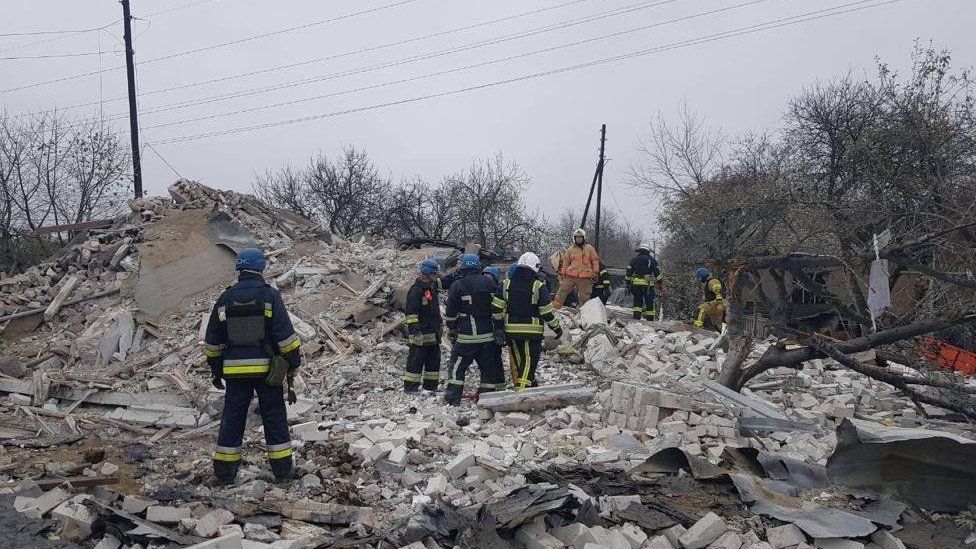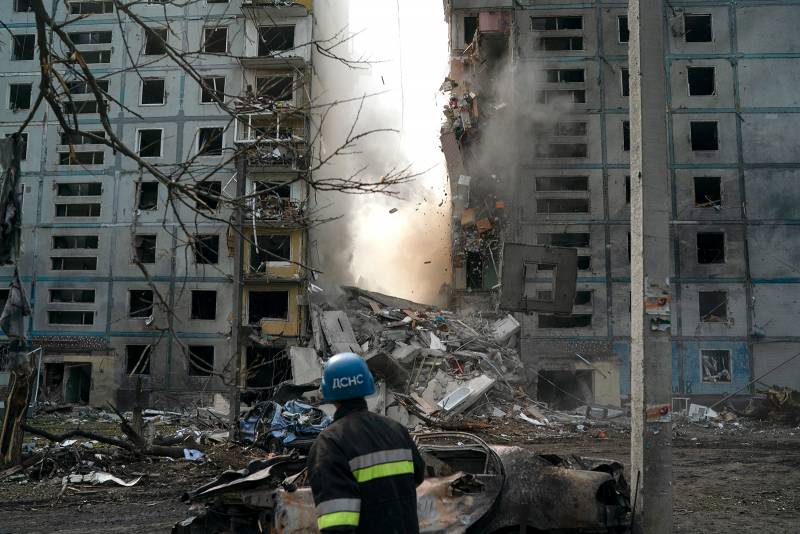President Volodymyr Zelensky has said 10 million Ukrainians are without power after a fresh wave of missile strikes by Russia. At least seven people were killed in the strikes, with the number expected to rise. "We are doing everything to normalize the supply," Mr Zelensky said in his nightly address. Ukraine's air defence managed to shoot down six cruise missiles and five drones, he added.
On Thursday, Russia pounded Ukraine with a fresh missile barrage, hitting more energy installations and civilian buildings less than two days after one of its heaviest bombardments yet. This has been a recent Russian tactic following setbacks on the battlefield, and its impact is starting to be felt more acutely. People in Kyiv woke to a blanket of snow on Thursday morning, and the emergency power shutdowns have meant many do not have heating in their homes.
Read Also: Did Grammy nominations confirm Burna Boy’s status as a Grammy baby?
Those suffering power outages are mainly in the capital, Kyiv, the western city of Vinnytsia, the port city of Odesa in the southwest and Sumy in the northeast. Ukrainians are taking air raid alerts seriously after the recent wide-ranging assaults. The capital, Kyiv, was just one place where the sirens sounded on Thursday. At about 08:00 local time (06:00 GMT), mobile phones started pinging with official warnings of a new missile attack across Ukraine. Local air defenses swung into action and military authorities reported that four cruise missiles and five Iranian-made drones had been shot down.

Once again, the damage was country-wide. Seven people died when a missile hit their apartment block in Vilnyansk, near the southern city of Zaporizhzhia, the Ukrainian presidency said. In the same region, 70 shells were said to have landed around the city of Nikopol, leaving thousands of homes without power and water. A gas production plant in the east and a missile factory in Dnipro were also hit. Further strikes on infrastructure - as well as civilian injuries - were logged by officials in the southern Odesa region and Kharkiv in the north. President Zelensky said Russia did not want peace, but instead was bringing his compatriots "only as much pain and suffering as possible". The Ukrainian leader repeated his calls for Ukraine's partners to offer "full protection of the Ukrainian sky", saying that to do so would encourage Russia to end the war. Moscow has looked to justify its recent strikes by accusing Kyiv of "unwillingness" to negotiate.
Meanwhile, in Moscow, the Kremlin has hit back at recent reports that Russia is planning on using tactical nuclear weapons in Ukraine. Asked whether President Vladimir Putin would consider resorting to use the weapons and whether it had been discussed, Kremlin spokesperson Dmitry Peskov said "no one from the Russian side is discussing this topic and has not discussed it". In other developments, the Ukrainian government has said a deal that allows it to export grain by ships on the Black Sea has been extended for another 120 days. The agreement, brokered by the UN and Turkey, has allowed millions of tonnes of produce to be shipped out of Ukraine in recent months - easing worries about global food security. Before it was implemented in July, Russia had been blocking Ukraine's Black Sea ports. It confirmed on Thursday that the deal would be continued "without changes".




